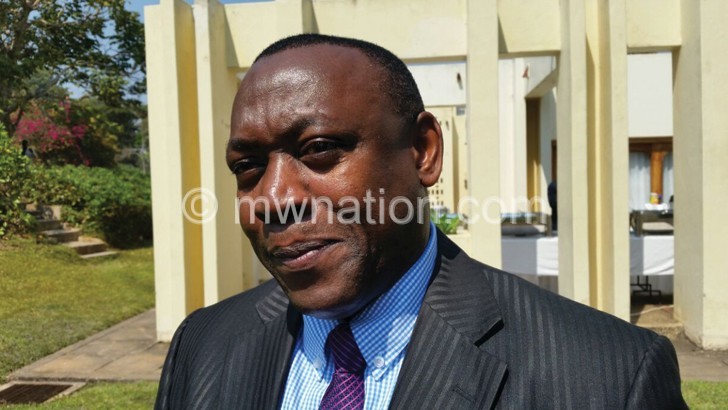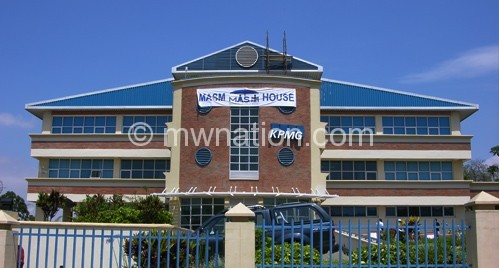Health insurance firms lost 40% premiums to fraud
Medical aid schemes have become easy targets for fraudsters costing the country’s private healthcare system nearly 40 percent of premiums paid out annually to service providers.
The suspected scam involves health facilities, medical aid members, medical personnel and pharmacies, who collude and present bogus claims to the health insurance firms.

In addition to fraud, which mainly involves billing for services not rendered, billing for more expensive services than the actual ones provided, billing non-covered services, misrepresenting services, overutilisation of services and false or unnecessary issuance of prescription drugs, waste and abuse are other factors contributing to high percentage of fraudulent claims.
Other examples of fraud, abuse and waste include members offering their medical aid cards to friends and relations, health providers admitting patients to hospitals when not clinically necessary and, also, submitting claims without the medical aid member’s knowledge.
Health Funders Association of Malawi (Hfam) president Elsie Munthali said in an interview that fraud, abuse and waste of health services and funds was impacting heavily on the industry, but hoped to deal with the challenges.
Hfam is a grouping of communal medical aid schemes such as Medical Aid Society of Malawi (Masm), Horizon Health Limited and Medhealth as well as in-house medical scheme providers such as Malawi Revenue Authority (MRA) and Electricity Supply Commission of Malawi (Escom).

“Fraud, abuse and waste is our biggest challenge as medical scheme providers. We are trying our best by putting in place measures that bogus claims must not exceed 30 percent, but there are times when the figures are higher because of the fraudulent, abusive and wasteful claims,” lamented Munthali, who is Horizon Health chief executive officer.
“The system became paramount due to the Covid-19 pandemic because a lot of people got sick and most of them had no resources so relatives would feel sorry for them and take them to hospital under their names,” she said.
The country’s health insurance industry is yet to undertake an inclusive study on how much the sector loses annually to fraud, abuse and waste, but depends on data provided by the regional body Board of Healthcare Funders of Southern Africa (BHFSA).
BHFSA is headquartered in South Africa and its membership includes medical aid schemes, administrators and managed care organisations. It covers South Africa, Lesotho, Zimbabwe, Namibia, Botswana, Mozambique, Malawi and Zambia.
In an interview from South Africa, BHFSA head of research Charlton Murove said to enable stakeholders work together in the fight against fraud, waste and abuse, her organisation established a multi-stakeholder forum called the Healthcare Forensic Management Unit.
“Information and data relating to suspected instances of FWA [fraud, waste and abuse] are shared and collective action is taken against perpetrators.
“Stakeholders need to get to a point where they can effectively measure losses due to FWA so that appropriate action can be taken. FWA is a major problem because it drains much-needed, limited resources from healthcare, making it expensive and inaccessible,” she said.
According to Masm chief executive officer Sydney Chikoti, BHFSA estimates that fraud, abuse and waste accounts for up to 40 percent of claims medical schemes pay out annually.
Masm is the country’s oldest and biggest health insurance agency by membership (with over 145 000 members as of December 2021) as well as investment.
Masm’s Consolidated Financial Statements for the year-ended June 30 2021, shows that the society’s expenditure in claims was K22 billion, translating to over K8 billion being payment to healthcare fraudsters.
“As part of strategies to control claims expenditure, the society continued to maintain an established service provider network, whereby claims tariffs rates and prices are negotiated. Further, your society embarked on several wellness initiatives to reduce the level of claims,” reads part of the financial statement.
Chikoti said perpetrators of healthcare fraud continue finding new ways of defrauding the sector, which ultimately impacts the premiums the society pays for cover.
He, however, observed that fraud, abuse and wastage of medical aid funds affect members through increased aid contributions.
“The impact is actually huge. It’s a chain because it goes back to the members and ends up eating into their funds,” he said.
But Munthali said through meetings organised by BHFSA, one of which was virtually conducted yesterday, they were setting up a technical team of investigators to be probing issues of fraud, abuse and waste.
“But as Hfam, we are also talking to other partners such as Medical Council of Malawi [MCM] and the Ministry of Health on how best we can work together, because we require a consolidated solution and strategic ways of dealing with the malpractice,” she said.
MCM registrar Dave Zolowere said once in a while the council is consulted to resolve cases whenever its member is involved in fraudulent activities.
But Happy Makala, executive director of Christian Health Association of Malawi, the country’s largest non-governmental healthcare provider and trainer, said they have not received any complaint against any of their facilities regarding health insurance fraud, abuse and waste.
There is currently no public health insurance system operating in the country and private health insurance flourish, to some degree, largely due to government’s provision of free healthcare and financing of health services.
Health rights advocate Maziko Matemba noted that fraud, abuse and waste not only compromise reliability of the schemes but, also, destabilise the provision of quality healthcare services.
Matemba, who is executive director of Health and Rights Education Programme (Hrep), further observed that such malpractices put lives of vulnerable patients who are in need of quality healthcare at risk.





